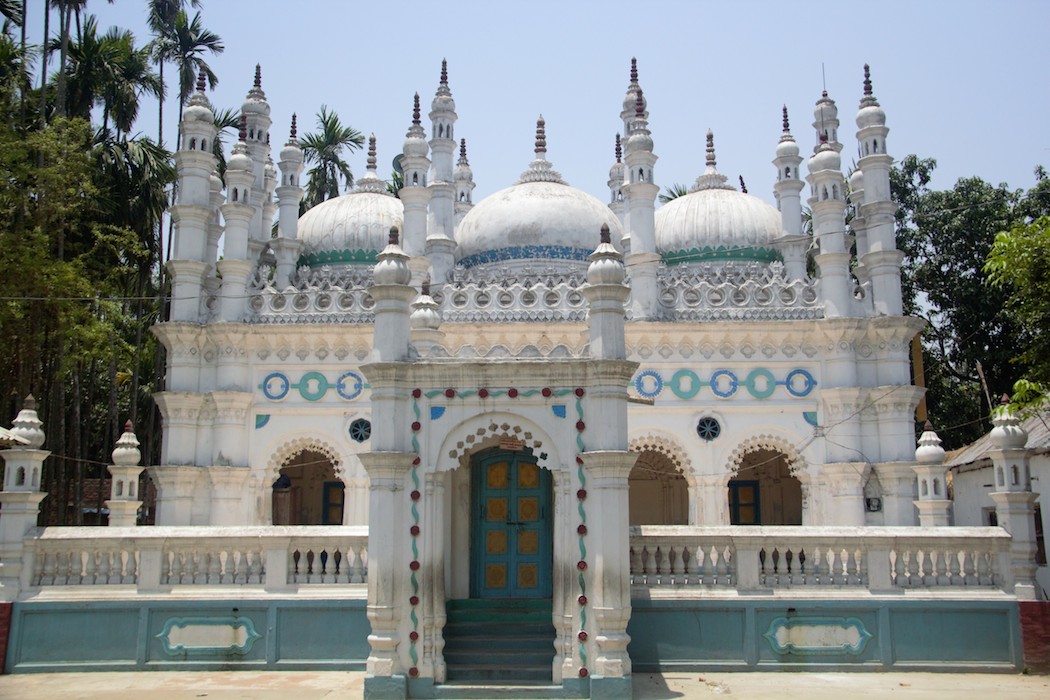Religious minorities accuse government of deliberate attempt to win votes ahead of national elections

A centuries-old mosque is seen here in village in Bangladesh’s northern Thakurgaon district in this May 15, 2014 file photo. Bangladesh’s government is moving ahead with a project to build 560 ‘model mosques’ across the country partly funded by Saudi Arabia, causing unease among religious minority groups in this Muslim-majority nation. (Photo by Rock Ronald Rozario/ucanews.com)
May 16, 2018
Bangladeshi minority leaders including a top church official have condemned a US$ 1.07 billion mosque project initiated by the government, calling it a blatant attempt to win over Muslim voters ahead of national elections at the end of the year.
The government has said the mosques are a bid to combat extremism.
This week, the government is expected to float tenders for the building of 560 “model mosques” across the country, local media reported.
The project is supposed to be partly funded by Saudi Arabia.
On May 3, Bangladesh’s Prime Minister Sheikh Hasina inaugurated the project, although Saudi authorities have yet to release the promised funds.
The government has taken this initiative so that people can receive the real teaching of Islam and exercise Islamic culture properly, the United News of Bangladesh reported Hasina as saying.
“We want a good image of our holy religion to be upheld. Islam is a religion of peace and we want peace to prevail,” Hasina said, adding that Islam is being defamed by the killing of innocent people and the carrying out of militant and terrorist acts in the name of religion.
Each mosque will cost 150 million Taka (US$ 1.8 million), according to Shamim Afzal, head of state-run Islamic Foundation, which is tasked with overseeing the project.
“Unlike the 300,000 existing mosques, the ‘model mosques’ will include libraries and Islamic cultural centers. They would preach against distorted Islamic philosophy of radical groups and political parties,” Afzal told ucanews.com.
Theophil Nokrek, secretary of Catholic Bishop’s Justice and Peace commission called the initiative unfair to adherents of other faiths.
“Usually, a community, wealthy Muslim businessman and organizations take up initiatives to build mosques in respective communities, but not the government. Building hundreds of mosques with state funds or a grant is a kind of discrimination against other religions,” Nokrek told ucanews.com.
“The question is whether the government could have released such a huge amount for the welfare of other faiths,” he said.
Nokrek said it is an attempt by the ruling Awami League to win over rural Muslim voters.
The Awami League is a semi-secular political party that has been in power since 2008.
“It wants to win Muslim votes in relatively conservative areas, where it traditionally performs poorly. If the government was really enthusiastic about fighting extremism, it should have fixed mosques accused of spreading radical Islam and also promoted education and awareness against militancy,” Nokrek said.
Govinda Chandra Pramanik, president of Bangladesh National Hindu Grand Alliance called the new mosque scheme “unnecessary.”
“Our constitution advocates equal treatment of all faiths. In that sense it is a biased and unjust project to benefit the faith of the majority. In reality, this scheme is a tool to secure Muslim votes for the ruling party,” Pramanik, a Supreme Court lawyer told ucanews.com.
Muslim-majority Bangladesh has long been known as a moderate and secular democracy, albeit fragile.
The nation has suffered badly in recent years with a rise in Islamic militancy that has seen up to 50 people including so-called atheist bloggers, religious minorities, gay activists and foreigners murdered by militants.
